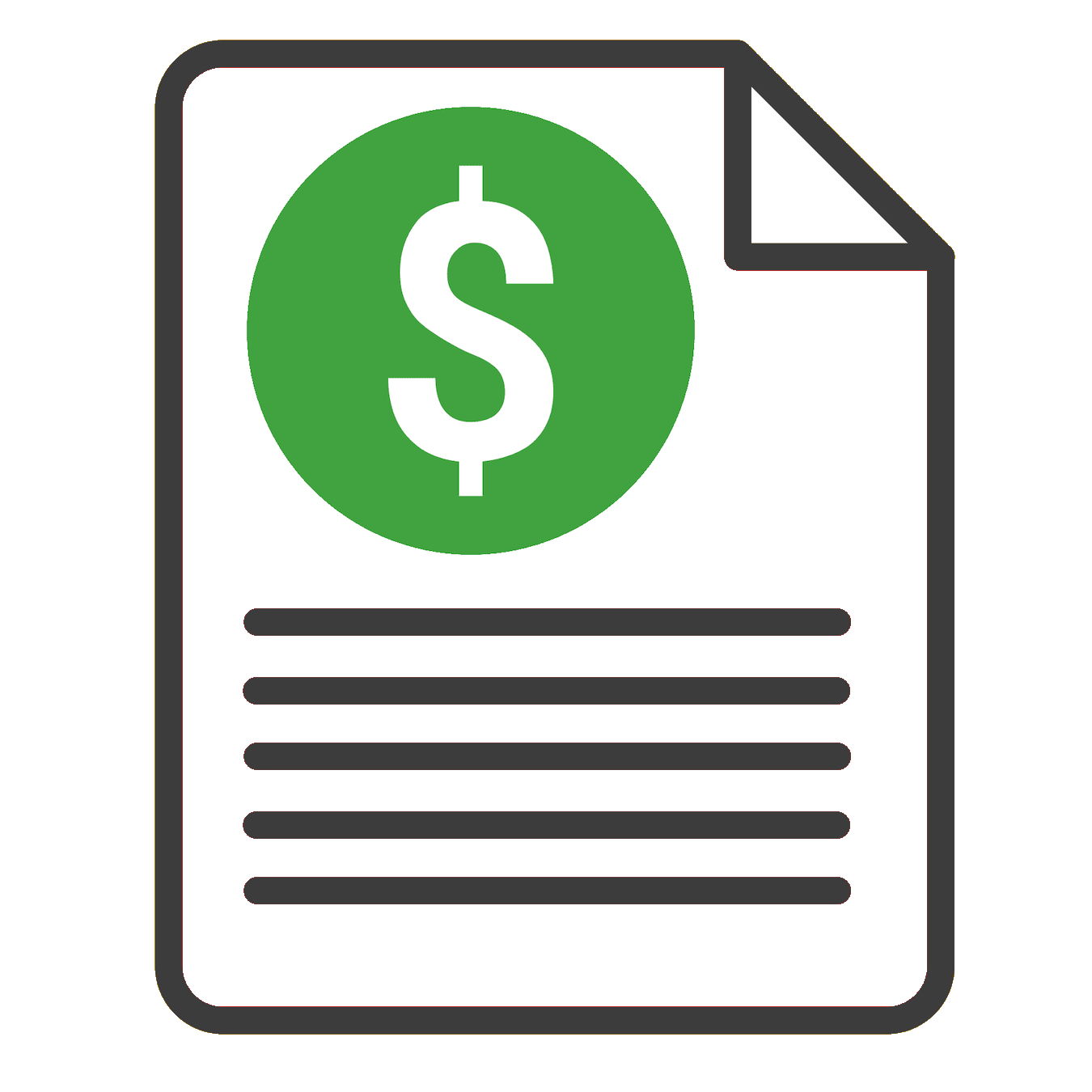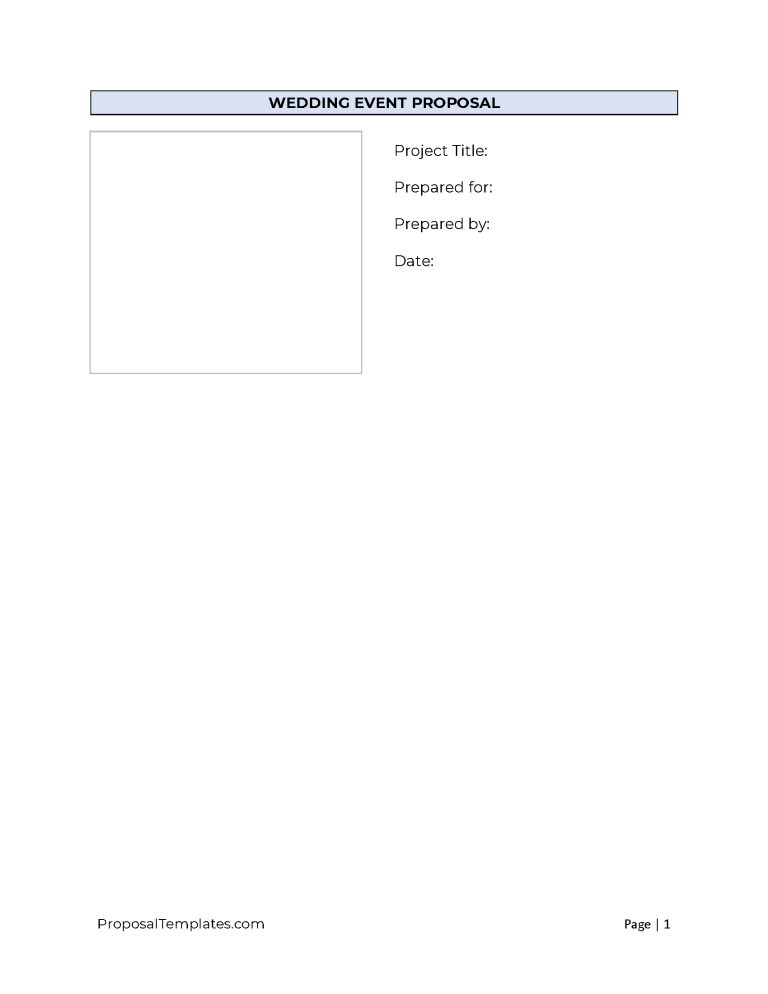The wedding event proposal approaches clients, such as engaged couples, with the services and packages a wedding planner offers. Some wedding clients will have unique visions; however, every proposal should include the planner’s approach, pricing, and samples.
Types Of Wedding Event Proposals (9)
-
Full Wedding Planning Proposal – This proposal discusses every phase of wedding services (i.e., ceremony, RSVPs) provided by wedding planners.
-
Basic Wedding Planning Proposal – This proposal offers clients a streamlined planning such as day of coordination and vendor selection.
-
Partial Wedding Planning Proposal – Proposals offering partial assistance since only basic tasks like vendor or venue selection are sought.
-
Day Of Coordination Proposal – A proposal featuring planning support services (i.e., communication, scheduling) for the wedding day.
-
Destination Wedding Planning Proposal – Proposals showing a planner’s adaptability in travel arrangements and local vendors since attendees must travel.
-
Theme Wedding Planning Proposal – A proposal that promotes the planner’s ability to follow a specific client-requested theme (i.e., rustic).
-
MicroWedding/Elopement Wedding Planner Proposal – This proposal approaches wedding clients who desire a small and overall intimate wedding event.
-
Consultation Wedding Planning Proposal – This proposal offers consultation as well as current options for clients wishing to seek advice when planning their wedding.
-
Budget-Centered proposal – This proposal approaches clients significantly interested in controlling the event’s costs.
1. Wedding Event Proposal Cover Page
Compose a cover page for the purpose of grabbing the client’s attention in addition to presenting the wedding planner’s information. Also, give the proposal an appropriate title.
Proposal Title, Author, Graphic Design
Proposing Company Name, Logo, Information
Recipient Client Name, Contact Information
Personalization, Introduction, Subtle Branding
Table Of Content, Footer
2. Introduction To Proposal
Congratulate the potential clients (if appropriate) while also presenting the wedding planner and their services. Moreover, emphasize the wedding planner’s excitement in working with the clients.
Greeting, Enthusiasm
Concise Wedding Planner Background, History
Planning Approach, Benefits
Client Vision, Client-Centric Focus
CTA, Collaborative Effort, Next Steps
3. Overview Of Wedding Planner
Present the wedding planner’s mission, history, and certifications so as to introduce the business to the client. Additionally, build the proposal’s momentum up by mentioning how the client would benefit from working with the wedding planner.
Wedding Planner Name, Logo, Mission
Founding History, Vision, Values, Experience
Specializations, Team Overview, Insurance
Licensing, Awards, Recognitions, Certifications
Portfolio, Professinal Affiliations
4. Wedding Planner Services
Specifically, list the wedding services the planner can provide the client. For instance, day-of coordination, vendor arrangements, customizations, and RSVP management can all be highlighted separately or together.
Service Packages, Package Description
Customization, Add-Ons Services
Service Pricing, Payment Terms
Legal Considerations, Proposal Expiration
Contact Information
5. Wedding Client Vision
Open communication between the client and the wedding planner by discussing their vision since this will build a workable relationship. If this is the first contact with the potential client, then encourage them to contact the planner for this purpose.
Vision Acknowledgment, Initial Consultation
Design, Mood Boards, Styles, Design
Collaboration, Communication, Key Elements
Personalization, Guest Experience
Cultural/Religious Themes, Venue Selection
6. Concept Or Theme Of Theme
Present the potential wedding planner themes or event design options for the ceremony event whenever applicable. Produce this presentation even if the client does not have specific ideas but is open to exploring themes.
Initial Consultation (Recap), Collaboration
Style/Theme Options, Inspiration, Ceremony
Decor, Ambiance/Mood, Lighting, Mood Boards
Proposed Design, Venue Integration, Reception
Floral Design, Stationary, Entertainment/Music
7. Wedding Vendor Management
Lay out how the wedding planner can assist in tasks such as finding and coordinating with vendors like photographers and caterers. Also, mention how this service can alleviate some uncertainty in navigating their services.
Vendor Categories, Sourcing Process
Selection Criteria, Coordination, Client Involvement
Budget, Vendor Contracts, Management Timeline
Vendor Payment Schedule, Vendor Portfolio
Emergency Contingency Plan
8. Event Planning Process And Timeline
Outline the timeline of the meetings and wedding in addition to delivering a detailed schedule for each action. For example, define when each meeting and deliverable is scheduled.
Pre-Ceremony, Bride/Groom Preparation, Ceremony
Schedule, Cocktail Hour, Reception, Bouquet/Garter Toss
Seating, Special Moments, Toasts, Dinner Service
Vendor Arrival/Departure, Cake Cutting
Transition, Photography, Miscellaneous Details
9. Ceremony And Reception Venue Management
If applicable, discuss the method the wedding planner will employ in finding as well as securing the event venue. For instance, explain the assistance the wedding planner will provide when navigating venue agreements and logistics.
Initial Consultation, Venue Options
Site Visits, Evaluation, Budget Meeting
Negotiating Contracts, Vendor Coordination
Logistic Strategy, Timeline/Scheduling Development
Contingencies, Deposits, Booking
10. Guest List And RSVP Management
Discuss the organization skills the wedding planner can offer the client so they clearly understand the wedding planner’s guest management role. For example, define if the wedding planner will handle guest travel arrangements when requested.
Initial Consultation, Guest List Creation
Guest List Management Software, Venue Coordination
Save The Dates, Invitations, Deadline Management
RSVP Tracking, Follow-Up Communication, Privacy
Seating Arrangements, Updates, Caterer Coordination
11. Event Logistics
Discuss the wedding planner’s strategy for managing vendor coordination, timeline, and the overall flow of events. Also, assure the wedding client of the planner’s professionalism and network resources in this area.
Date, Time, Venue Selection, Floor Plan/Layout
Transportation, Accommodations, Catering
Design, Entertainment, Vendor Coordination
Ceremony/Reception Details, Seating Arrangements
Event Staffing, Rentals, Equipment, Budget Contingencies
12. Wedding Planner’s Pricing Structure
Estimate the total price of the wedding package and specifically define each contributing cost, fee, and anticipated expense. In the event of an undecided client, spell out the wedding planner’s approach and philosophy to event budgeting.
Total Cost, Service Fees, Additional Expenses
Deposit, Payment Schedule, Scope
Discounts, Promotions, Customizations
Payment Methods, Cancellation Policies, Refunds
Taxes, Exclusions, Terms/Conditions, Validity
13. References And Past Successes
Showcase the wedding planner’s references coupled with positive testimonials. Additionally, include recommendations from past successful event attendees and clients.
Previous Client Names, Privacy Statements, Contacts
Testimonials, Anecdotes, Testimonial
Photographs, Images, Media
Diversity, Success Stories, Industry Status
Contact Information, Recommendations
14. Frequently Asked Questions (FAQ)
Document common or anticipated questions together with their answers for the wedding client’s convenience. Generally, this can remove some client confusion or hesitation, allowing them to progress to the next step confidently.
Services Offered
Pricing And Packages
Customizations, Changes
Schedules, Availability
Vendors, Venues, Flexibility
15. Contracts And Legal Considerations
Dispense a thorough discussion explaining the contracts (as well as their content) required for the wedding planner to proceed with the client. This area should concisely describe the agreement conditions, such as acceptable payment terms and cancellation policies.
Wedding Service Agreement Provisions, Sample Contract
Licenses, Permits, Acknowledgments
Vendor Agreements, Venue Registration Forms
Waivers, Disclosures, Notices, Attachments
Package Information, Contact Information
16. Appendices
Complete this proposal’s paperwork requirements while keeping it organized by condensing all oversized documents and images in one section. For example, previous wedding 8x10s or image files, budget sheets, and time charts can all be gathered here.
Calendars, Schedules
Samples, Media, Photographs
Pricing Packages, Brochures
Contracts, Forms, Oversized Documents
Contact Information, Portfolio
17. Closing And Call To Action
Close this proposal with a reminder of the wedding planner’s skills as well as their desire to support the client’s wedding event. In a word, end this proposal positively and invite the client to continue to the next step.
Main Points, Positive Expressions
Qualification Summary, Proposal Expiration
Call To Action, Encouragement, Prompting
Proposal Deadline, Attachment/Appendice Reminder
Confidentiality, Exclusivity, Signature Area (Planner, Client)

